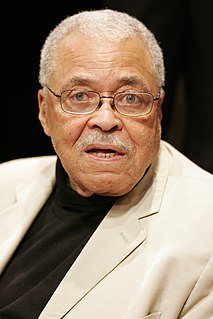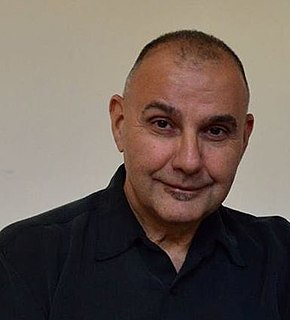A Quote by James Earl Jones
And I think, on the other end, there were actors who were not as good as I was, perhaps who could have hung in too, but began to blame everything on race.
Related Quotes
No blame can be attached to the army for its failure to accomplish what was projected by me... I alone am to blame, in perhaps expecting too much of its prowess and valor... could I have foreseen that the attack on the last day would fail, I should certainly have tried some other course... but I do not know what better course I could have pursued.
Sometimes you imagine that everything could have been different for you, that if only you had gone right one day when you chose to go left, you would be living a life you could never have anticipated. But at other times you think there was no other way forward--that you were always bound to end up exactly where you have.
Science, by itself, cannot supply us with an ethic. It can show us how to achieve a given end, and it may show us that some ends cannot be achieved. But among ends that can be achieved our choice must be decided by other than purely scientific considerations. If a man were to say, "I hate the human race, and I think it would be a good thing if it were exterminated," we could say, "Well, my dear sir, let us begin the process with you." But this is hardly argument, and no amount of science could prove such a man mistaken.
The Huygens images were everything our images from orbit were not. Instead of hazy, sinuous features that we could only guess were streams and drainage channels, here was incontrovertible evidence that at some point in Titan's history - and perhaps even now - there were flowing liquid hydrocarbons on the surface.
I think we spend a lot of time denying our mothers. We understand other women earlier than we understand our mothers because we're trying so hard to say, "I'm not going to be like my mother" that we blame her for her condition. If we didn't blame her for her condition, we would have to admit that it could happen to us, too. I spent a long time doing that, thinking that my mother's problems were uniquely her fault.
At the beginning of the 20th century, before the migration began, 90 percent of all African-Americans were living in the South. By the end of the Great Migration, nearly half of them were living outside the South in the great cities of the North and West. So when this migration began, you had a really small number of people who were living in the North and they were surviving as porters or domestics or preachers - some had risen to levels of professional jobs - but they were, in some ways, protected because they were so small.


































